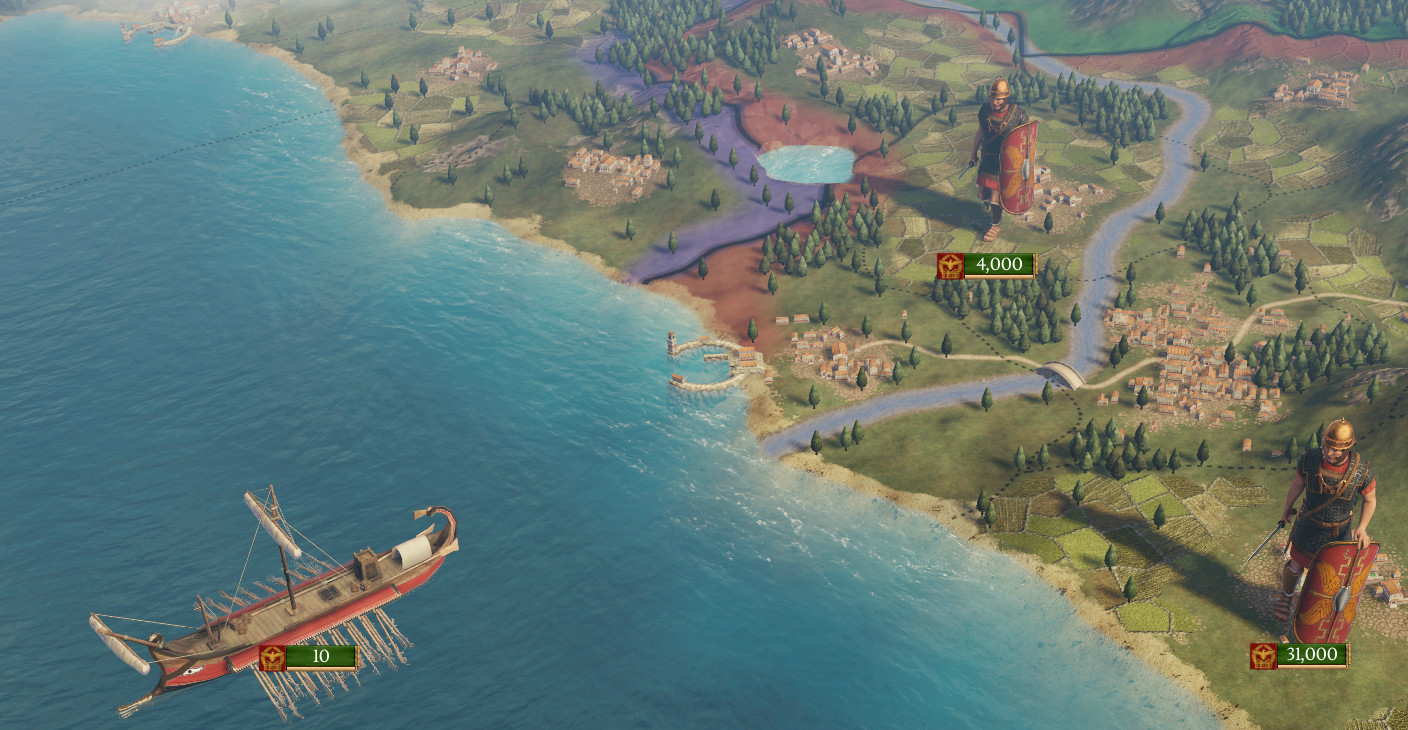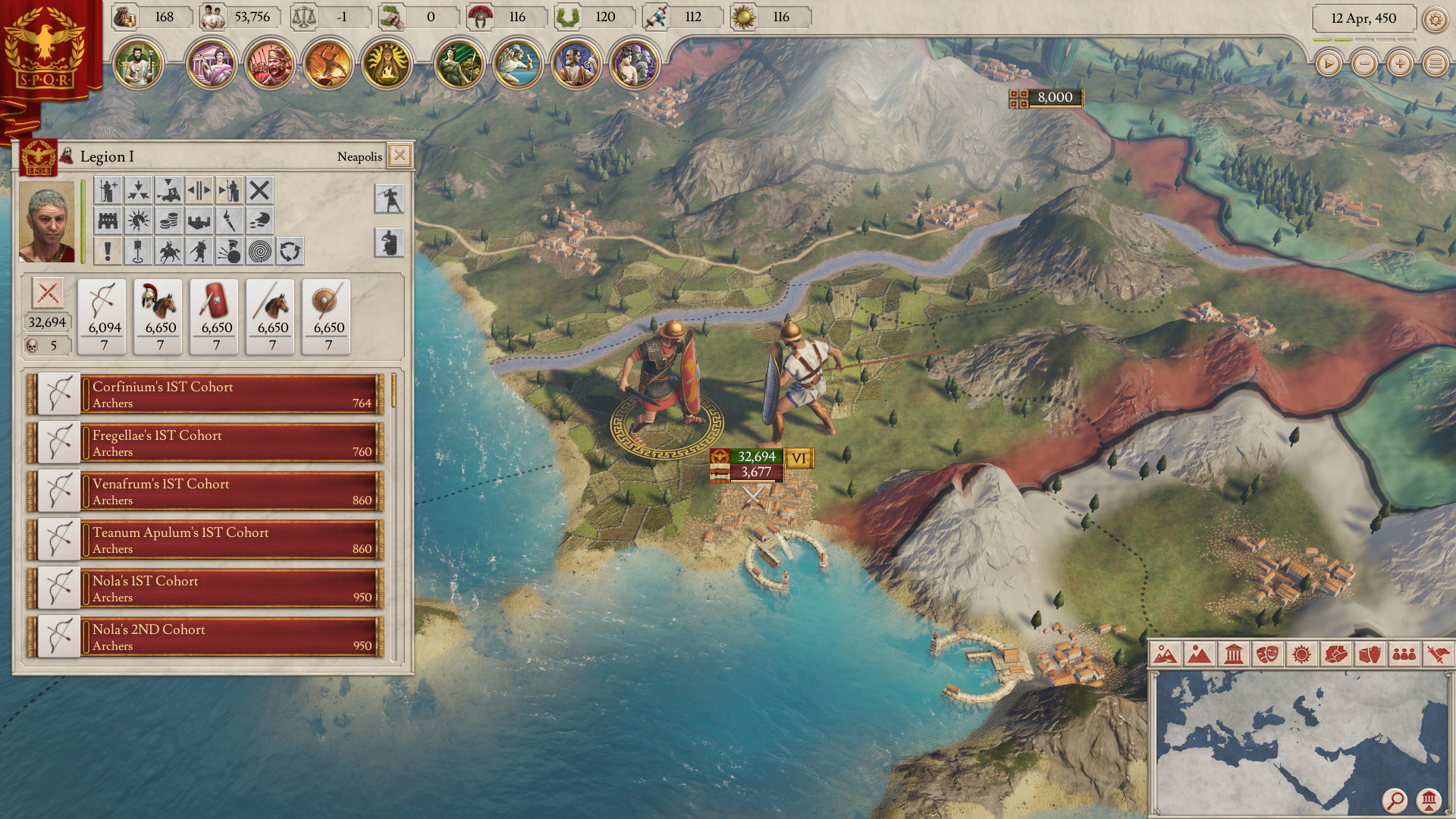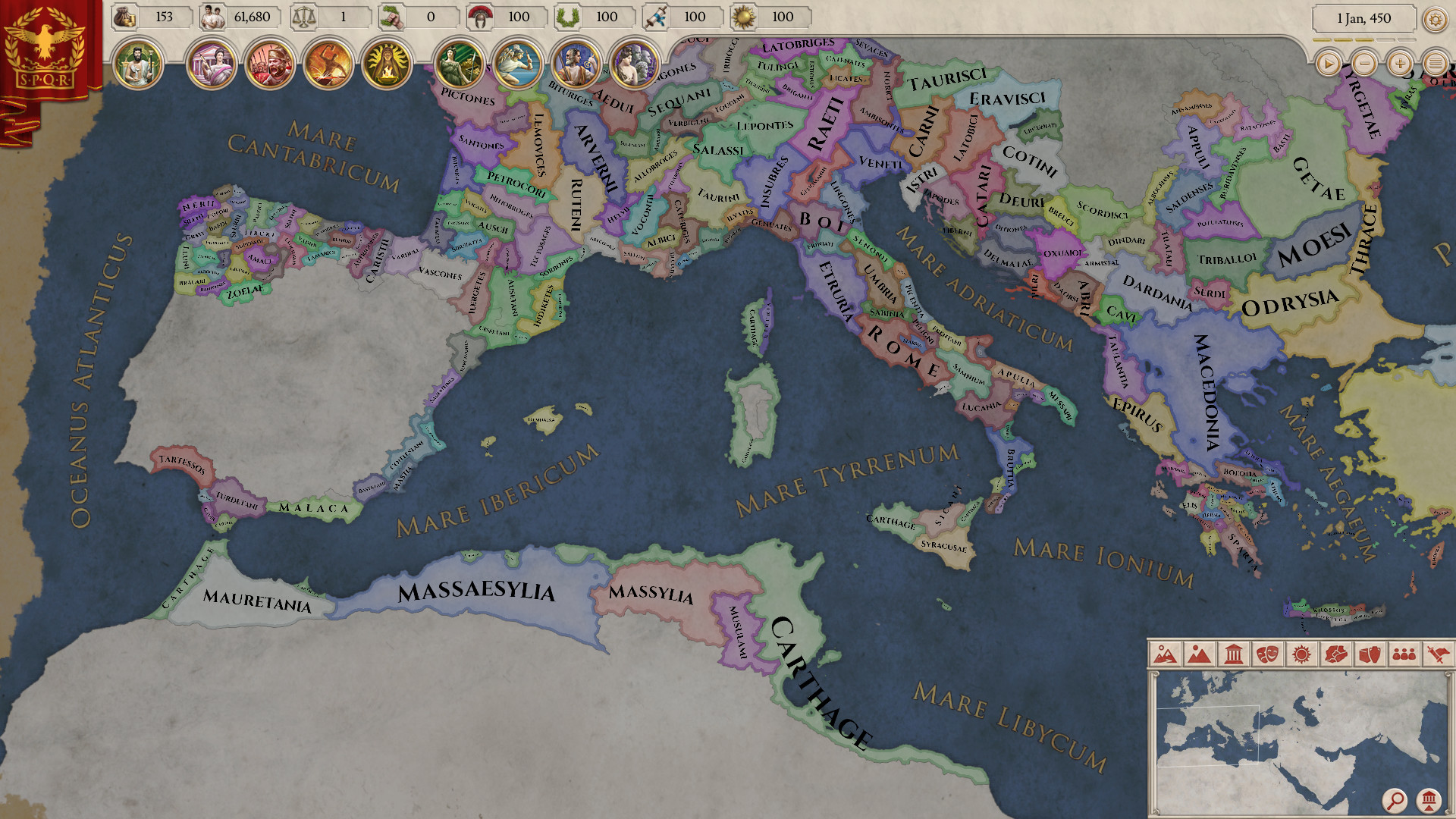Imperator: Rome has the makings of a gorgeous, accessible grand strategy saga
Rome wasn't built in a day. But will it be ready by "early 2019"?

The final announcement of PDXCon 2018's Saturday stage introduction saw veteran designer Johan Andersson dressed in a toga, flanked by Roman soldiers. There, he announced Imperator: Rome—a sequel to 2008's EU: Rome—with a reveal trailer that failed to feature in-game footage.
Behind the scenes at the expo, I'm shown a bare bones build which Andersson talks through. Imperator: Rome is due to launch in "early 2019", but it's got a ways to go if it's to land on time—even if Andersson assures me "there's no way in hell we won't get it out in the first half of next year."
Taking place from 304BC to the founding of the Roman Empire, Imperator promises 7,000 explorable, conquerabled and developable cities—all within Paradox's familiar, granular grand strategy framework.
Like previous Europa Universalis games—and unlike, say, Crusader Kings 2—Imperator: Rome offers a less personal approach to politics, but factors such as popularity, prominence and public opinion must be balanced with your global presence in mind. Republics contain five different factions with different goals and agendas—each of which can be pandered to or plundered as you see fit.

Continuing the positive strides made by stablemates Europa Universalis 4 and Stellaris in recent years, Imperator's UI is far more accessible than its now decade-old forerunner—but is no less sophisticated.
Information on its three government types—republics, tribes and monarchies—is accessed from a multitude of pull-down menus, as is the process of enacting laws. If you're running a republic, you might consider passing bills through the senate—but going full Julius Caesar and removing democracy from the equation entirely is also possible. You nasty sod.
Military options let you manage the discipline and morale of the troops, and unlock traditions based on the types of troops you rule. Technologies grant you access to inventions and research over time; and you can enact economic policies in various areas of your nation, with diplomacy tied to your global power. Building forts, training camps and marketplaces can positively and negatively affect all of the above.
Keep up to date with the most important stories and the best deals, as picked by the PC Gamer team.

If you're familiar with Paradox's previous games, you've seen this all before—even if certain names and titles have been tweaked this time round. These traits do however illustrate how systematic Imperator is. Andersson stresses his desire to keep individual personalities, with their own skills and attributes, limited to their roles within the political machine. True to the era it mimics, civil war is never far from the table.
The world map upon which all of this unfolds is easily the best-looking Paradox Development Studio has ever created. Zoomed out, its vibrant territory-specific colours echo its forerunners, whereas every cloud, shadow and trickling ocean-bound river looks stunning when zoomed in.
The area we're shown transitions from the game's map, to the sprawl of trees, piers and sandy beach fronts of pre-Rome Italy. It's a sight to behold, and I can't help but think this iteration of the Clausewitz Engine, coupled with Imperator's accessible interface, has scope to welcome new faces to the grand strategy genre.
But it's early days yet. Large sections of the map I was shown were incomplete, as were chunks of its UI. I'm a wee bit concerned Imperator's 'first half of 2019' launch target is unrealistic—most of the feature-related questions posed during the presentation were deflected, shrugged off or confirmed with ambiguity—but Andersson and his team's track record speaks for itself.

